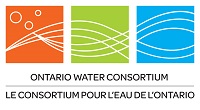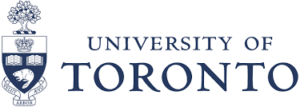University of Toronto has established the Institute for Water Innovation (IWI). It is a multi-disciplinary, multi-departmental network focused on expediting research and development of advanced water technologies by sharing knowledge, ideas, and resources. IWI strives for global leadership in water research by developing breakthrough technologies that address challenges in urban drainage systems and water distribution networks; chemical and microbial characterization of water systems; water and wastewater treatment (including desalination and industrial waters); and remediation and restoration of contaminated waters.
RESEARCH CENTRES AND INSTITUTES
The Institute for Water Innovation brings together talent from U of T Engineering and builds internal and external partnerships to expediate research and development in advanced water technologies that ultimately address critical water challenges facing society.
Contact: Mandeep Rayat
PHYSICAL FACILITIES
Contact: Chelsea Rochman
Facilities in the Stable Isotope Laboratory include two Finnigan MAT gas source mass spectrometers (252 and delta-+ XL), both in continuous flow configuration with a gas chromatograph enabling compound specific isotope analysis of carbon, hydrogen, oxygen, and nitrogen.
Contact: Chelsea Rochman
Contact: Chelsea Rochman
Our laboratory is equipped with four, 6 ft fume hoods, lots of bench space for conducting experiments, and a range of basic laboratory equipment that we use for our research.
Contact: Chelsea Rochman
The high-resolution mass spectrometry is essential to understand the chemical components of DBPs from disinfected waters. In combination with computational programs, it is possible to detect hundreds of known and unknown DBPs in a single batch of experiments.
Contact: Chelsea Rochman
The laboratory includes a range of analytical equipment for water quality testing, as well as bench-scale devices to explore different forms of water treatment.
Contact: Chelsea Rochman
This world class applied research facility houses infrastructure enabling sampling, surveying and analyses of environmental (i.e., wastewater, tailings) samples for geochemical (e.g. carbon, sulfur, nitrogen, metals) and microbiological (genomics and imaging) analyses, as well as the capacity for biogeochemical experimentation simulating environmental conditions.
Contact: Chelsea Rochman
The WERL facility has a state-of-the-art reverse osmosis system with a custom-made pressure vessel with an in-situ viewing window.
Contact: Chelsea Rochman
Stable isotope facility: we have a gas chromatograph connected to an isotope ratio mass spectrometer (GC/IRMS) for stable carbon, nitrogen, and hydrogen isotope analysis at natural abundance, referred to as Compound Specific Isotope Analysis (CSIA).
Contact: Chelsea Rochman
BioZone researchers leverage the dramatic progress in genome science and computational biology to discover, design, and develop biocatalysts and bioprocesses that improve industrial sustainability and reduce environmental impact.
Contact: Chelsea Rochman
RESEARCH GROUPS AND LABS
Chelsea Rochman’s research seeks to understand the sources, fate, and ecological implications of synthetic chemicals and microplastics in freshwater and marine ecosystems.
Contact: Chelsea Rochman
Miriam Diamond’s research is motivated by the need to develop defensible strategies to reduce chemical contaminants in the environment, striving to identify and connect sources of chemical emissions to the movement of chemicals through systems and ultimately to exposure.
Contact: Miriam Diamond
Barbara Sherwood Lollar’s work establishing the principles for using isotopic tracers to identify and quantify microbial and chemical transformation of groundwater contaminants.
Contact: Barbara Sherwood Lollar
Ken Howard’s research topics that range from numerical flow modeling and contaminant migration to environmental isotopes and borehole geophysics.
Contact: Ken Howard
Myrna Simpson’s Environmental Metabolomics – research includes development of methods to monitor ecosystem health that are rapid, routine, and quantitative.
Contact: Myrna Simpson
The Peng group at the University of Toronto is interested in the identification of drinking water disinfection by-products (DBPs) and their toxicity mechanisms.
Contact: Hui Peng
Contact: Jay Werber
Contact: Christopher Lawson
Contact: Dr. Grant Allen
Contact: Frank Gu
Contact: Vladimiros Papangelakis
Contact: Elizabeth Edwards
Contact: Robert Andrews, Susan Andrew, Ronald Hofmann
Contact: Jennifer Drake
Contact: David Meyer
Contact: Elodie Passeport
Contact: Brent Sleep
Contact: Lesley Warren
Contact: Amy Bilton


